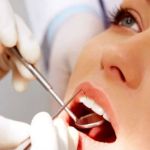Comprehensive Oral Care Guide: Essential Tips for a Healthy Smile
- Introduction to Oral Care
- Why Oral Hygiene is Crucial for Your Health
- Building a Daily Oral Care Routine
- Common Oral Health Issues and How to Prevent Them
- Advanced Oral Care: Beyond the Basics
- The Role of Professional Dental Visits
- Conclusion: Achieving Long-term Oral Health
Oral health is essential not only for a beautiful smile but also for your overall health. A comprehensive oral care guide helps you navigate through the steps of maintaining healthy teeth and gums, preventing cavities, gum disease, and other common oral health issues. In this guide, we will explore the basics of oral hygiene, tips for daily care, and advanced methods for taking your oral care to the next level.
1. Why Oral Hygiene is Crucial for Your Health
Good oral hygiene is more than just about maintaining a bright smile. Studies have shown that poor oral health can be linked to serious conditions such as heart disease, diabetes, and even dementia. Regular oral care helps prevent plaque buildup, tooth decay, and gum disease, all of which can lead to more severe issues over time.
Beyond aesthetics, oral health affects your ability to chew and speak comfortably, which are crucial functions for everyday life. Moreover, maintaining proper oral hygiene boosts your confidence by preventing bad breath and gum issues.
2. Building a Daily Oral Care Routine
A solid daily oral care routine is the foundation of a healthy smile. The key components of an effective routine include:
- Brushing: Brush your teeth at least twice a day with fluoride toothpaste. Spend two minutes brushing to thoroughly clean all surfaces of your teeth and gums.
- Flossing: Flossing removes food particles and plaque from between your teeth, where your toothbrush can't reach. Do this once a day to help prevent cavities and gum disease.
- Mouthwash: Use an antimicrobial mouthwash to reduce bacteria and keep your breath fresh. Mouthwash can also help with overall gum health.
By following these simple steps, you can maintain a clean and healthy mouth, reducing the risk of dental issues that can lead to more serious complications later on.
3. Common Oral Health Issues and How to Prevent Them
Many individuals face common oral health problems, but with proper care, these can be prevented or minimized:
- Cavities: Cavities are caused by the buildup of plaque and bacteria that eat away at tooth enamel. Prevent cavities by brushing regularly and limiting sugary foods.
- Gum Disease: Gum disease can cause inflammation, bleeding gums, and even tooth loss. Regular brushing, flossing, and professional cleanings are essential to avoid gum disease.
- Tooth Sensitivity: Sensitivity occurs when enamel wears down or gums recede, exposing the nerves. Using desensitizing toothpaste and avoiding extreme temperatures can help reduce discomfort.
Understanding these issues and following expert oral care advice can go a long way in protecting your teeth and gums from more serious problems.
4. Advanced Oral Care: Beyond the Basics
Once you've mastered basic oral care, you may want to explore advanced techniques to further improve your dental health. These include:
- Professional Teeth Whitening: Teeth whitening treatments can help remove stains caused by coffee, tobacco, or aging, offering a brighter smile.
- Dental Sealants: Sealants are thin coatings applied to the chewing surfaces of your back teeth to protect them from decay. This is particularly beneficial for children or those prone to cavities.
- Fluoride Treatments: Regular fluoride treatments can strengthen your enamel and make your teeth more resistant to decay.
These advanced methods should be discussed with your dentist to determine which options are best suited to your needs and oral health goals.
5. The Role of Professional Dental Visits
Even with an excellent oral care routine at home, regular visits to your dentist are essential for long-term oral health. Dentists can detect issues like cavities, gum disease, and even oral cancer in their early stages, preventing more serious health problems. Professional cleanings also remove plaque and tartar that you cannot remove by brushing alone.
It is recommended to visit your dentist every six months for a checkup and cleaning. Your dentist can offer expert oral care advice tailored to your individual needs, ensuring your smile stays healthy for years to come.
6. Conclusion: Achieving Long-term Oral Health
Oral health is an integral part of your overall well-being. By following a comprehensive oral care guide, maintaining a proper daily routine, and seeking professional dental care regularly, you can ensure your smile stays healthy for a lifetime. Whether you're looking for advice on improving your routine or want to explore more advanced oral care options, expert tips and guidance can make a world of difference.
If you're ready to take your oral care to the next level, visit Dentistry Toothtruth for personalized advice, product recommendations, and professional services that support your oral health journey.







 Monterey Hills Dental4.0 (94 review)
Monterey Hills Dental4.0 (94 review) Gateway Dental Group4.0 (162 review)
Gateway Dental Group4.0 (162 review) Marcellus T. Horsch, DDS4.0 (5 review)
Marcellus T. Horsch, DDS4.0 (5 review) Arden Dental Associates - Carlos Campodonico, DDS4.0 (138 review)
Arden Dental Associates - Carlos Campodonico, DDS4.0 (138 review) The Geller Dental Group p.c.4.0 (799 review)
The Geller Dental Group p.c.4.0 (799 review) Marshall H Titus, DDS0.0 (0 review)
Marshall H Titus, DDS0.0 (0 review) The Importance of Oral Health Education During Pregnancy for a Healthy Pregnancy
The Importance of Oral Health Education During Pregnancy for a Healthy Pregnancy Best Tips for Brushing Your Teeth Properly for Healthy Gums: Essential Techniques for Oral Health
Best Tips for Brushing Your Teeth Properly for Healthy Gums: Essential Techniques for Oral Health Why Skipping Dental Checkups Can Lead to Bigger Oral Health Problems
Why Skipping Dental Checkups Can Lead to Bigger Oral Health Problems Advantages of Porcelain Dental Restorations
Advantages of Porcelain Dental Restorations How Can Diabetes Cause Tooth and Gum Problems? Preventing and Managing Oral Health Issues
How Can Diabetes Cause Tooth and Gum Problems? Preventing and Managing Oral Health Issues Healthy Habits for Promoting Good Oral Health and Hygiene: Tips for a Healthy Smile
Healthy Habits for Promoting Good Oral Health and Hygiene: Tips for a Healthy Smile